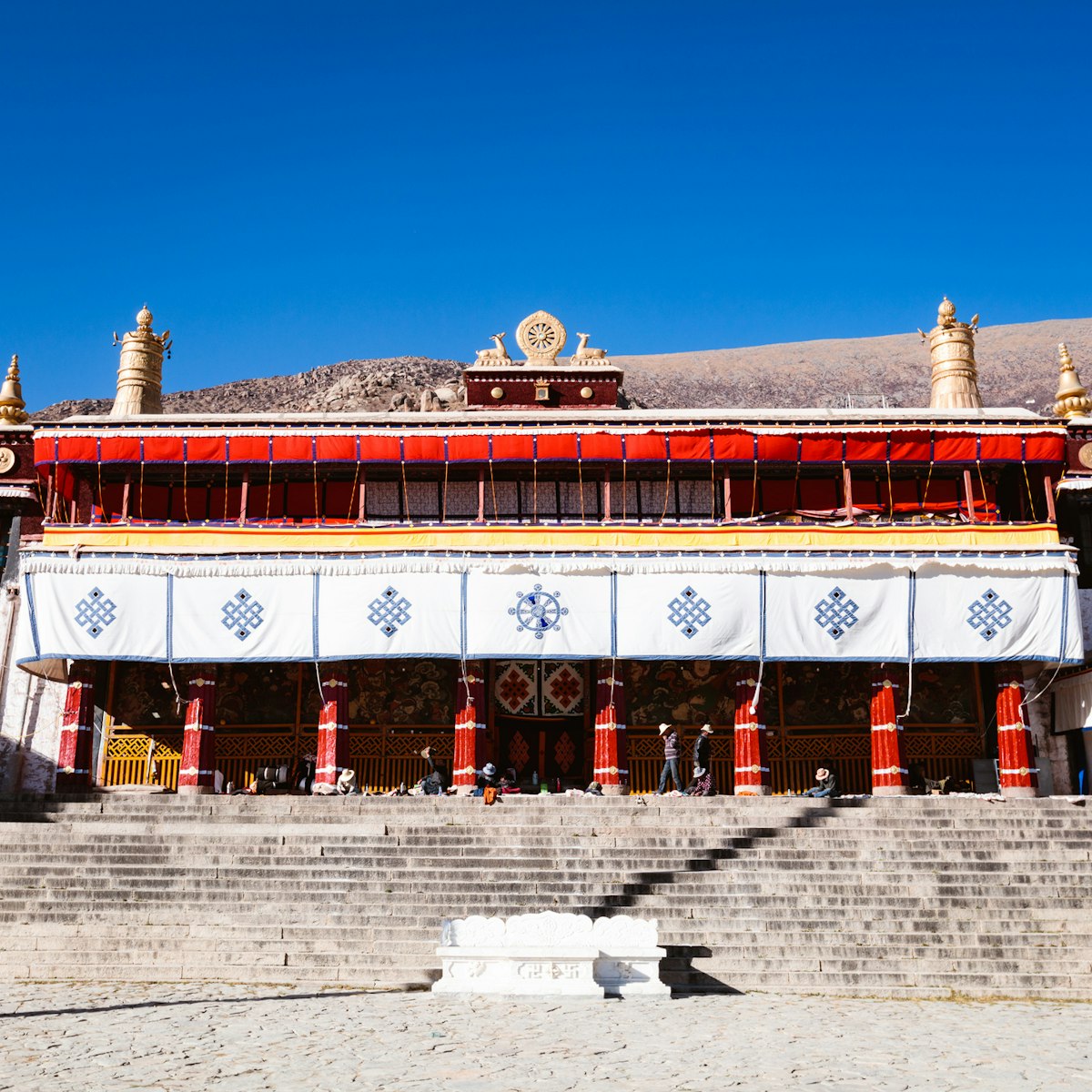Along with Mindroling Monastery, Dorje Drak (3520m) is one of the two most important Nyingmapa monasteries in Ü, both considered among the six great Nyingmapa monasteries in Tibet. With a remote and romantic location, historically less accessible than Mindroling, it consequently gets few Western visitors and the 40 resident monks seem happy to welcome travellers. It was under expansion at the time of research.
Dorje Drak was forcibly relocated to its present site in 1632 by the kings in Tsang. A line of hereditary lamas known as the Rigdzin leads the monastery. The title is named after the first Rigdzin Godemachen, thought to be a reincarnation of Guru Rinpoche. The fourth Rigdzin, Pema Trinley, was responsible for expanding the monastery in the early 18th century, though his efforts were for naught as the Dzungar Mongols sacked the place in 1718; Pema Trinley did not survive the onslaught. The 10th Rigdzin Lama currently resides in Lhasa.
Dorje Drak's main assembly hall has statues of the first and second Rigdzins and the fifth Dalai Lama, while the inner room features Pema Trinley, the fourth Rigdzin, next to Sakyamuni; a small side chapel holds the ornate tomb stupa of the ninth Rigdzin lama. The old B&W photo by the entryway shows the extents of the original monastery.
The Samsum Namgyel Gönkhang to the right has five butter sculptures representing the chapel’s five protectors. A cabinet holds the monastery’s treasures, including a fragment of a staff belonging to Milarepa that was smashed in the Cultural Revolution.
To the east of the older structures, a new assembly hall was finished in 2015 with murals depicting the life of Shakyamuni. Up on the 2nd and 3rd floors are two smaller chapels, but the real draw here is the excellent vista of the monastic complex and Yarlung Tsangpo Valley beyond.
A demanding 1½-hour kora leads around the back of the dorje-(thunderbolt-)shaped rock behind the monastery, up to the ruined Sengye Dzong atop the rock. The path overlooks some dramatic sand dunes and the views from the retreat are simply stunning, but the faint, sandy trail is a hard slog up and a steep scramble down. You need to scale a fence to get to the dzong ruins.
Dorje Drak is on the northern bank of the Yarlung Tsangpo, 18km east of the Gālá Shān tunnel and bridge leading to the airport and a quick 50km west of Samye, along a well-sealed road. Hard-core trekkers can approach Dorje Drak from Lhasa, a trek of around four days.






